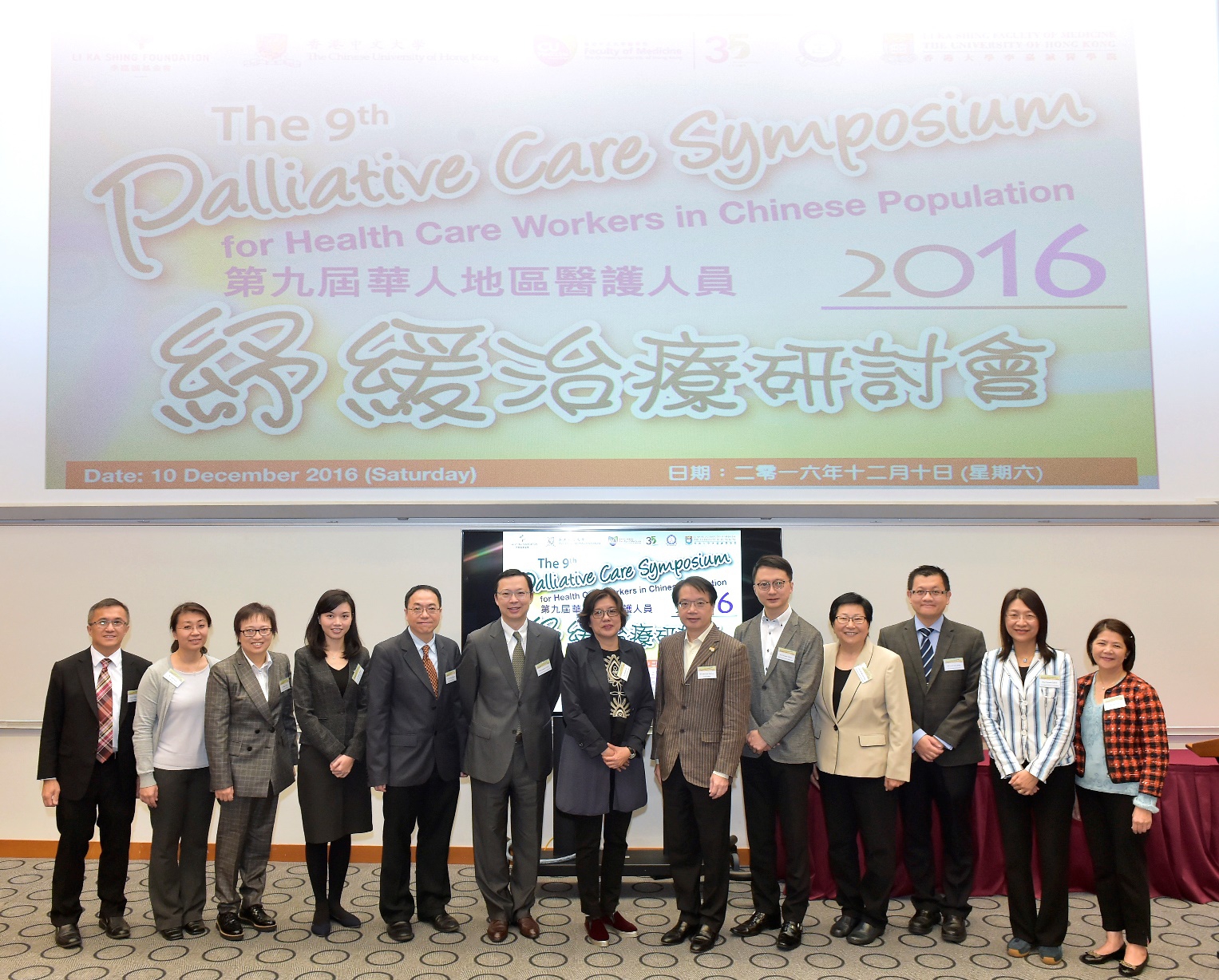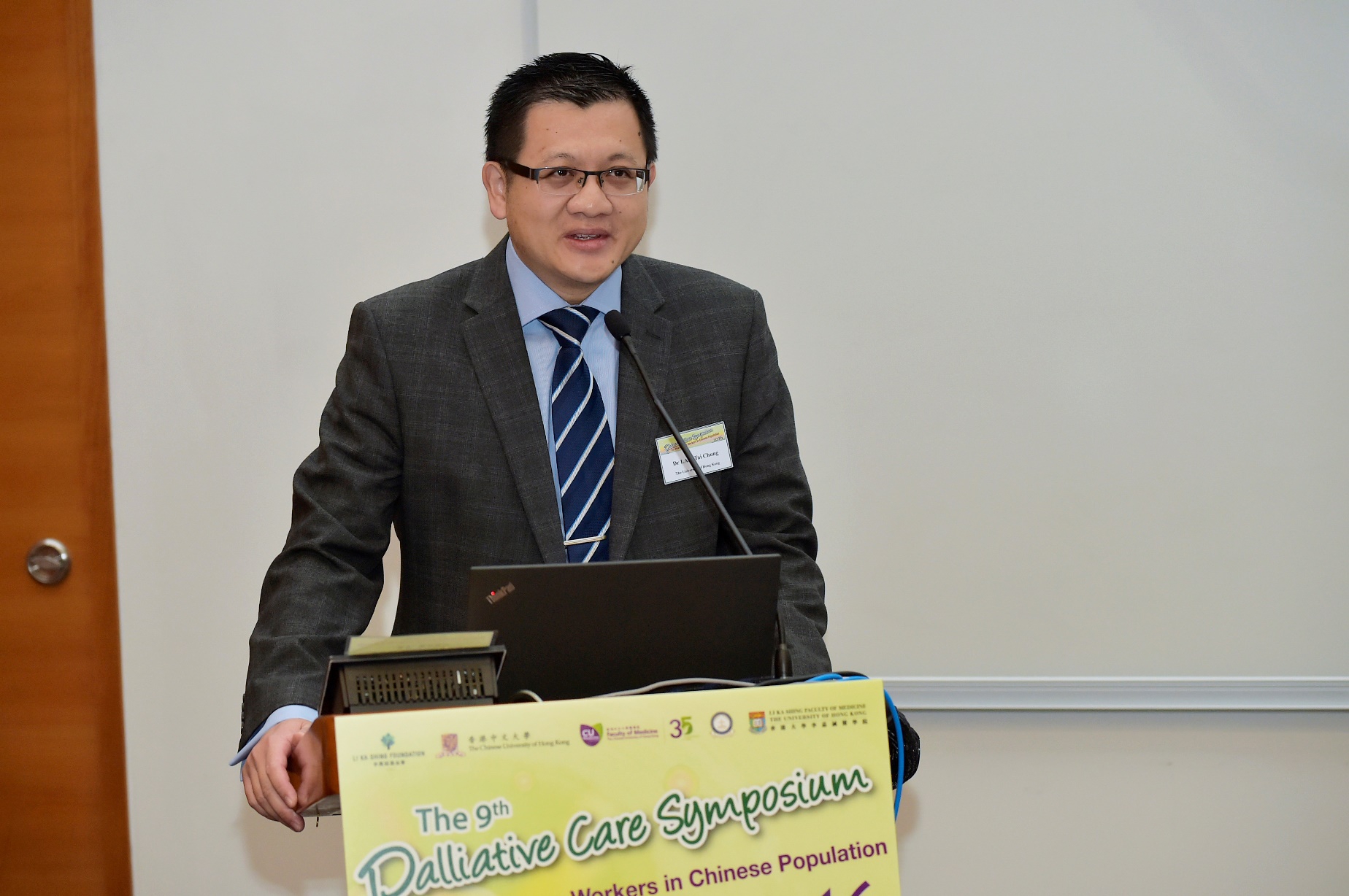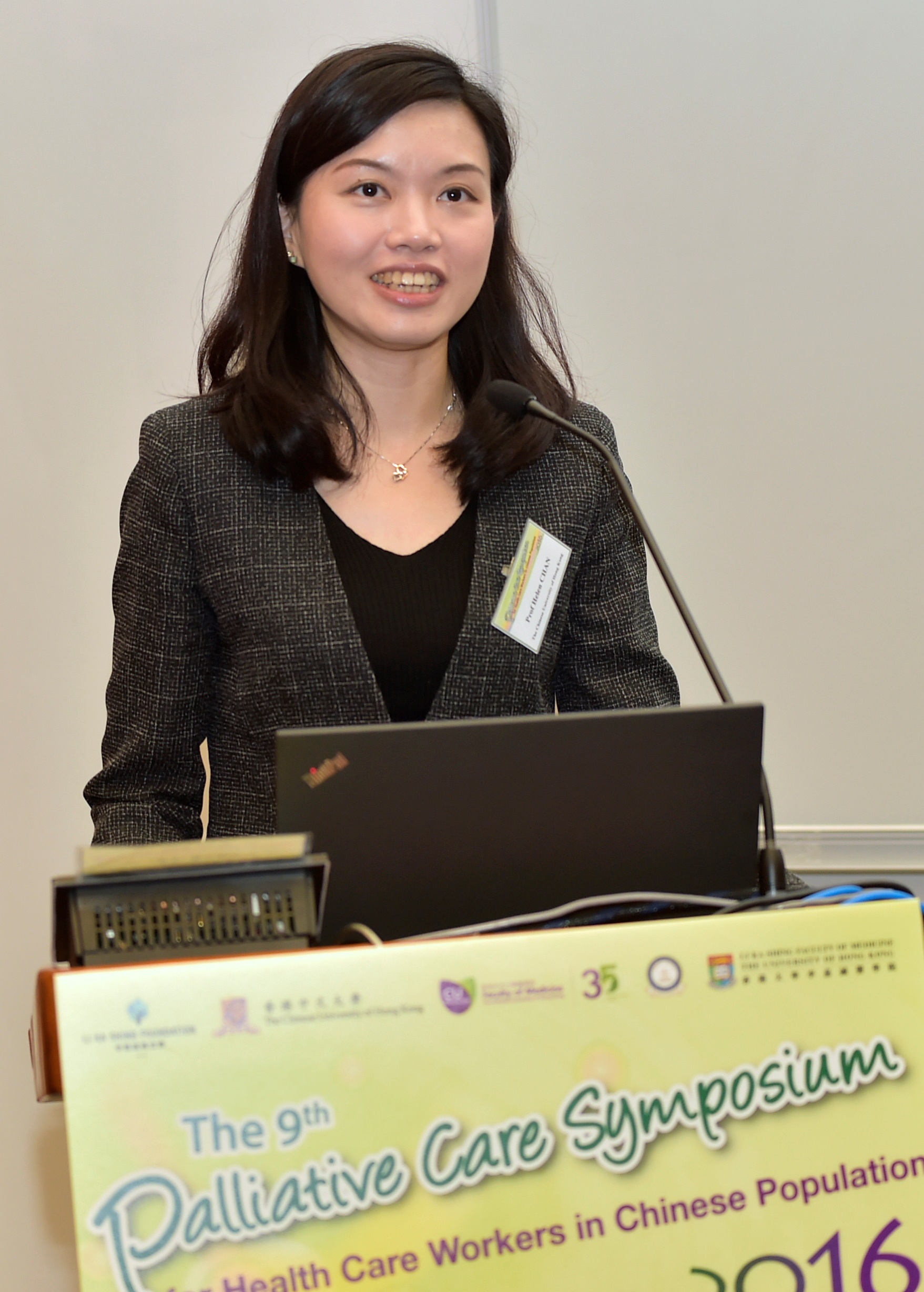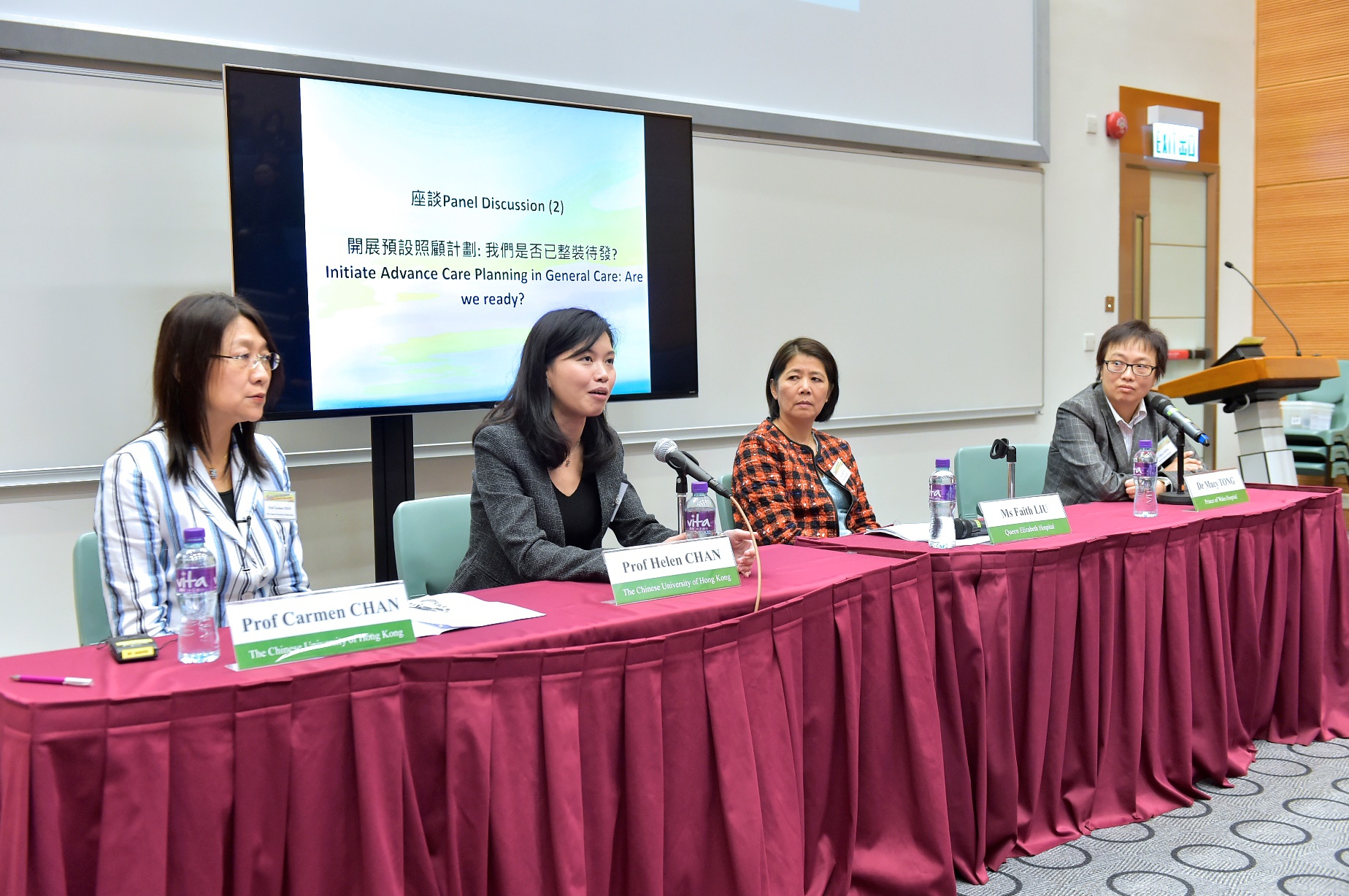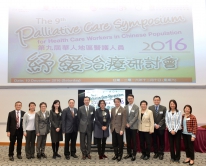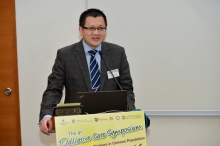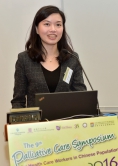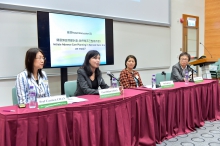CUHK
News Centre
The 9th Palliative Care Symposium for Health Care Workers in Chinese Population:‘Integrating Palliative Care into General Care: Paving the Way for Future’
The 9th Annual Palliative Care Symposium for Health Care Workers in Chinese Population, jointly organized by the Faculty of Medicine of The Chinese University of Hong Kong (CUHK); Li Ka Shing Faculty of Medicine of the University of Hong Kong (HKU) and the Li Ka Shing Foundation ‘Heart of Gold’ Hong Kong Hospice Service Programme, was held at the Prince of Wales Hospital on December 10. Over a hundred local healthcare workers including medical practitioners and nurse consultants shared their experiences and exchanged views on the topics of palliative care. Under the theme of ‘Integrating Palliative Care into General Care: Paving the Way for the Future’, this year’s Symposium provided an excellent platform for participants to discuss the way forward of local palliative care services through collaboration between different professional bodies.
Dr Wai-lun CHEUNG, Director (Cluster Services) of Hospital Authority; Professor Francis Ka Leung CHAN, Dean of the Faculty of Medicine, CUHK; Professor Sek-ying CHAIR, Director of the Nethersole School of Nursing, Faculty of Medicine, CUHK; and Dr Katherine LO, Senior Project Manager of Li Ka Shing Foundation officiated at the opening ceremony of the Symposium.
Professor Francis Ka Leung CHAN, Dean of CUHK Faculty of Medicine, remarked, ‘With a rapidly ageing population in Hong Kong, the demand for palliative care services is ever increasing. How to provide appropriate care and support for patients with advanced diseases and their families has received increasing attention in the community. Therefore, the integration of palliative care into undergraduate medical education and the provision of clinical training are important for meeting the future medical needs and systematic services development.’
Dr Wai-lun CHEUNG, Director (Cluster Services) of Hospital Authority, noted that the Government has identified palliative care as one of the key development strategies. ‘The School of Public Health of the Faculty of Medicine at CUHK has been engaged by the Government to conduct a study to examine the development of palliative care services. In addition, the Hospital Authority is planning a framework for palliative care services so as to set up a “multi-team, multi-service and multi-disciplinary” development model. A blueprint for palliative care services development is expected to be available within one year.’ Dr CHEUNG hopes that the medical system and social services sector could work together in order to jointly support the development of palliative care services.
To promote palliative care through undergraduate medical education, one of the keynote speakers, Dr Tai-chung LAM, Clinical Assistant Professor from the Department of Clinical Oncology, Li Ka Shing Faculty of Medicine, HKU, said that surveys on medical students and frontline clinicians suggest high level of interest in acquiring palliative care competencies. ‘Scholars and healthcare workers in European countries and the United States have made great efforts in the standardization of palliative care teaching. In Hong Kong, small-group longitudinal care programme on patients with advanced disease and their care-givers has also been newly proposed to the undergraduate medical education. Apart from class teaching and discussion, medical students could gain the competencies through interactions with patients and care-givers.’
For clinically practicing palliative care services, the other keynote speaker, Professor Helen Yue Lai CHAN, Associate Professor from the Nethersole School of Nursing of the Faculty of Medicine at CUHK, shared her ideas of how to initiate Advance Care Planning with patients. ‘Talking about death and dying issues is still being considered as a taboo. But actually, there are strategies and tools to facilitate the discussion. For example, giving patients more opportunities to express fears and worries is therapeutic. Interdisciplinary collaboration could help too. This is not only helping the clinicians to understand patients’ treatment preferences at the end of life, but also empower both patients and their families to reflect on their life values.’
About the Palliative Care Symposium for Health Care Workers in Chinese Population
This annual Symposium is sponsored and supported by the Li Ka Shing Foundation. The Foundation aims at contributing to society by helping those in need to build a better life. Its munificent support in healthcare has benefited countless patients in Hong Kong, Mainland China and worldwide. In 1998, the Foundation pioneered free hospice care services in the Mainland with the establishment of the ‘Heart of Gold’ Hospice Service Programme. The Foundation’s total donation of over HK$700 million has supported 42 hospice centres in the Mainland and Hong Kong, serving 20,000 patients annually and benefitting over 190,000 cancer patients.
Over 100 local healthcare practitioners join this year’s Symposium, including Dr Wai-lun CHEUNG, Director (Cluster Services), Hospital Authority (6th right); Prof. Francis CHAN, Dean, Faculty of Medicine, CUHK (5th right); Prof. Sek-ying CHAIR, Director, the Nethersole School of Nursing, Faculty of Medicine, CUHK (4th right); Dr Katherine LO, Senior Project Manager, Li Ka Shing Foundation (central); Dr Tai-chung LAM, Clinical Assistant Professor, Department of Clinical Oncology, Li Ka Shing Faculty of Medicine, HKU (3rd right); and Prof. Helen Yue Lai CHAN, Associate Professor, the Nethersole School of Nursing, Faculty of Medicine, CUHK (4th left).
One of the keynote speakers – Dr Tai-chung LAM, Clinical Assistant Professor, Department of Clinical Oncology, Li Ka Shing Faculty of Medicine, HKU, shares on ‘Promoting palliative care through undergraduate medical education’.
Prof. Helen Yue Lai CHAN, Associate Professor, the Nethersole School of Nursing, Faculty of Medicine, CUHK, shares how to initiate conversations on Advance Care Planning with patients and their care-givers.
The first panel discussion: ‘How should palliative care be integrated into general medical education?’


